Maggid by Marge Piercy

The courage to let go of the door, the handle.
The courage to shed the familiar walls whose very
stains and leaks are comfortable as the little moles
of the upper arm; stains that recall a feast,
a child’s naughtiness, a loud blattering storm
that slapped the roof hard, pouring through.
Read Poem The courage to shed the familiar walls whose very
stains and leaks are comfortable as the little moles
of the upper arm; stains that recall a feast,
a child’s naughtiness, a loud blattering storm
that slapped the roof hard, pouring through.
0
Venus and Adonis by William Shakespeare

Even as the sun with purple-colour’d face
Had ta’en his last leave of the weeping morn,
Rose-cheek’d Adonis tried him to the chase;
Hunting he lov’d, but love he laugh’d to scorn;
Sick-thoughted Venus makes amain unto him,
And like a bold-fac’d suitor ‘gins to woo him.
‘Thrice fairer than myself,’ thus she began,
Read Poem Had ta’en his last leave of the weeping morn,
Rose-cheek’d Adonis tried him to the chase;
Hunting he lov’d, but love he laugh’d to scorn;
Sick-thoughted Venus makes amain unto him,
And like a bold-fac’d suitor ‘gins to woo him.
‘Thrice fairer than myself,’ thus she began,
0
Paradise Lost: Book 1 (1674 version) by John Milton

OF Mans First Disobedience, and the Fruit
Of that Forbidden Tree, whose mortal tast
Brought Death into the World, and all our woe,
With loss of Eden, till one greater Man
Restore us, and regain the blissful Seat,
Sing Heav'nly Muse, that on the secret top
Of Oreb, or of Sinai, didst inspire
That Shepherd, who first taught the chosen Seed,
Read Poem Of that Forbidden Tree, whose mortal tast
Brought Death into the World, and all our woe,
With loss of Eden, till one greater Man
Restore us, and regain the blissful Seat,
Sing Heav'nly Muse, that on the secret top
Of Oreb, or of Sinai, didst inspire
That Shepherd, who first taught the chosen Seed,
0
Joining the Colours by Katharine Tynan

There they go marching all in step so gay!
Smooth-cheeked and golden, food for shells and guns.
Blithely they go as to a wedding day,
The mothers' sons.
The drab street stares to see them row on row
On the high tram-tops, singing like the lark.
Too careless-gay for courage, singing they go
Into the dark.
With tin whistles, mouth-organs, any noise,
They pipe the way to glory and the grave;
Foolish and young, the gay and golden boys
Love cannot save.
Read Poem Smooth-cheeked and golden, food for shells and guns.
Blithely they go as to a wedding day,
The mothers' sons.
The drab street stares to see them row on row
On the high tram-tops, singing like the lark.
Too careless-gay for courage, singing they go
Into the dark.
With tin whistles, mouth-organs, any noise,
They pipe the way to glory and the grave;
Foolish and young, the gay and golden boys
Love cannot save.
0
Ode for the American Dead in Asia by Thomas McGrath
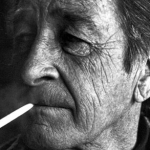
1.
God love you now, if no one else will ever,
Corpse in the paddy, or dead on a high hill
In the fine and ruinous summer of a war
You never wanted. All your false flags were
Of bravery and ignorance, like grade school maps:
Colors of countries you would never see—
Until that weekend in eternity
Read Poem God love you now, if no one else will ever,
Corpse in the paddy, or dead on a high hill
In the fine and ruinous summer of a war
You never wanted. All your false flags were
Of bravery and ignorance, like grade school maps:
Colors of countries you would never see—
Until that weekend in eternity
0
The Hunting of the Snark by Lewis Carroll

Fit the First
The Landing
"Just the place for a Snark!" the Bellman cried,
As he landed his crew with care;
Supporting each man on the top of the tide
By a finger entwined in his hair.
"Just the place for a Snark! I have said it twice:
That alone should encourage the crew.
Read Poem The Landing
"Just the place for a Snark!" the Bellman cried,
As he landed his crew with care;
Supporting each man on the top of the tide
By a finger entwined in his hair.
"Just the place for a Snark! I have said it twice:
That alone should encourage the crew.
0
1977: Poem for Mrs. Fannie Lou Hamer by June Jordan

You used to say, “June?
Honey when you come down here you
supposed to stay with me. Where
else?”
Meanin home
against the beer the shotguns and the
point of view of whitemen don’
never see Black anybodies without
Read Poem Honey when you come down here you
supposed to stay with me. Where
else?”
Meanin home
against the beer the shotguns and the
point of view of whitemen don’
never see Black anybodies without
0
On Quitting by Edgar Albert Guest
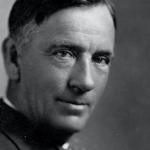
How much grit do you think you’ve got?
Can you quit a thing that you like a lot?
You may talk of pluck; it’s an easy word,
And where’er you go it is often heard;
But can you tell to a jot or guess
Just how much courage you now possess?
You may stand to trouble and keep your grin,
But have you tackled self-discipline?
Read Poem Can you quit a thing that you like a lot?
You may talk of pluck; it’s an easy word,
And where’er you go it is often heard;
But can you tell to a jot or guess
Just how much courage you now possess?
You may stand to trouble and keep your grin,
But have you tackled self-discipline?
0
The Testament of Beauty by Robert Bridges
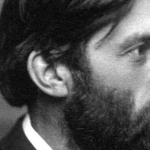
from Book I, Introduction
Man’s Reason is in such deep insolvency to sense,
that tho’ she guide his highest flight heav’nward, and teach him
dignity morals manners and human comfort,
she can delicatly and dangerously bedizen
the rioting joys that fringe the sad pathways of Hell.
Not without alliance of the animal senses
hath she any miracle: Lov’st thou in the blithe hour
Read Poem Man’s Reason is in such deep insolvency to sense,
that tho’ she guide his highest flight heav’nward, and teach him
dignity morals manners and human comfort,
she can delicatly and dangerously bedizen
the rioting joys that fringe the sad pathways of Hell.
Not without alliance of the animal senses
hath she any miracle: Lov’st thou in the blithe hour
0
Two Quits and a Drum, and Elegy for Drinkers by Alan Dugan

1. ON ASPHALT: NO GREENS
Quarry out the stone
of land, cobble the beach,
wall surf, name it “street,”
allow no ground or green
cover for animal sins,
but let opacity of sand
be glass to keep the heat
Read Poem Quarry out the stone
of land, cobble the beach,
wall surf, name it “street,”
allow no ground or green
cover for animal sins,
but let opacity of sand
be glass to keep the heat
0
Cold Calls (War Music, Continued) by Christopher Logue
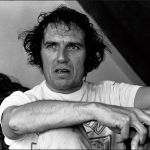
Many believe in the stars.
Take Quinamid
The son of a Dardanian astrologer
Who disregarded what his father said
And came to Troy in a taxi.
Gone.
Odysseus to Greece:
“Hector has never fought this far from Troy.
Read Poem Take Quinamid
The son of a Dardanian astrologer
Who disregarded what his father said
And came to Troy in a taxi.
Gone.
Odysseus to Greece:
“Hector has never fought this far from Troy.
0
Octaves by Edwin Arlington Robinson

I
We thrill too strangely at the master's touch;
We shrink too sadly from the larger self
Which for its own completeness agitates
And undetermines us; we do not feel—
We dare not feel it yet—the splendid shame
Of uncreated failure; we forget,
The while we groan, that God's accomplishment
Read Poem We thrill too strangely at the master's touch;
We shrink too sadly from the larger self
Which for its own completeness agitates
And undetermines us; we do not feel—
We dare not feel it yet—the splendid shame
Of uncreated failure; we forget,
The while we groan, that God's accomplishment
0
Satire III by John Donne

Kind pity chokes my spleen; brave scorn forbids
Those tears to issue which swell my eyelids;
I must not laugh, nor weep sins and be wise;
Can railing, then, cure these worn maladies?
Is not our mistress, fair Religion,
As worthy of all our souls' devotion
As virtue was in the first blinded age?
Are not heaven's joys as valiant to assuage
Lusts, as earth's honour was to them? Alas,
As we do them in means, shall they surpass
Us in the end? and shall thy father's spirit
Meet blind philosophers in heaven, whose merit
Of strict life may be imputed faith, and hear
Thee, whom he taught so easy ways and near
To follow, damn'd? Oh, if thou dar'st, fear this;
Read Poem Those tears to issue which swell my eyelids;
I must not laugh, nor weep sins and be wise;
Can railing, then, cure these worn maladies?
Is not our mistress, fair Religion,
As worthy of all our souls' devotion
As virtue was in the first blinded age?
Are not heaven's joys as valiant to assuage
Lusts, as earth's honour was to them? Alas,
As we do them in means, shall they surpass
Us in the end? and shall thy father's spirit
Meet blind philosophers in heaven, whose merit
Of strict life may be imputed faith, and hear
Thee, whom he taught so easy ways and near
To follow, damn'd? Oh, if thou dar'st, fear this;
0
Sohrab and Rustum by Matthew Arnold

An Episode AND the first grey of morning fill'd the east,
And the fog rose out of the Oxus stream.
Read Poem And the fog rose out of the Oxus stream.
0
Stella's Birthday March 13, 1727 by Jonathan Swift

This day, whate'er the Fates decree,
Shall still be kept with joy by me:
This day then let us not be told,
That you are sick, and I grown old;
Nor think on our approaching ills,
And talk of spectacles and pills.
To-morrow will be time enough
To hear such mortifying stuff.
Yet, since from reason may be brought
A better and more pleasing thought,
Which can, in spite of all decays,
Support a few remaining days:
From not the gravest of divines
Accept for once some serious lines.
Read Poem Shall still be kept with joy by me:
This day then let us not be told,
That you are sick, and I grown old;
Nor think on our approaching ills,
And talk of spectacles and pills.
To-morrow will be time enough
To hear such mortifying stuff.
Yet, since from reason may be brought
A better and more pleasing thought,
Which can, in spite of all decays,
Support a few remaining days:
From not the gravest of divines
Accept for once some serious lines.
0
Nuances of a Theme by Williams by Wallace Stevens

It’s a strange courage
you give me, ancient star:
Shine alone in the sunrise
toward which you lend no part!
I
Shine alone, shine nakedly, shine like bronze,
that reflects neither my face nor any inner part
of my being, shine like fire, that mirrors nothing.
Read Poem you give me, ancient star:
Shine alone in the sunrise
toward which you lend no part!
I
Shine alone, shine nakedly, shine like bronze,
that reflects neither my face nor any inner part
of my being, shine like fire, that mirrors nothing.
0
Something in the Belly by Deena Metzger
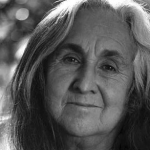
I wanted to have a poem and I was pregnant. I was very thin. As if I’d lived on air. A poet must be able to live on air, but a mother must not attempt it. My mother wanted me to buy a set of matching pots, Wearever aluminum, like the ones she had. They were heavy and had well fitting lids so my suppers wouldn’t burn. My husband wanted me to give dinner parties. John F. Kennedy was running for office.
I sensed danger. Kennedy wasn’t against the Bomb or for nuclear disarmament. I joined SANE at its inception. Also Concerned Scientists. I spoke with Linus Pauling and encouraged my husband to help his partner organize Physicians for Social Responsibility.
There was a baby in my belly. I wanted to write poems. I had a crazy idea that a woman could write a real novel, the kind that shook the world. I hallucinated that a woman could be a poet, but she would have to be free. I couldn’t imagine that freedom for myself even though I could see it in Isla Negra when I followed Pablo Neruda. I could see it in the way he walked. Even if he were walking inside a dictatorship, among guns, soldiers and spies, there was nothing between him and his vision. Anything he saw, he was able to take into himself–there was no sight, no image, no vision to which he didn’t feel entitled. In his heart, everything–everything–belonged to him. Pablo Neruda was–more than anything–a poet, and so he was an entitled man.
I was a woman and entitled to nothing. I had nothing except a husband, a rented house, a set of pots, living room furniture, a frenzy of obligations, credit cards, anxious relatives, too many acquaintances, a gift of future diaper service, two telephones, no time to read, a plastic wrapped cookbook of recipes gleaned from the pages of the New York Times, and a hunger, a terrible hunger for the unimaginable, unlimited freedom of being a poet, and a baby in my belly.
I would have called Pablo long distance if I had the courage, if I had the ability to speak Spanish fluently, if we had ever talked about real things. But, what would a man know about a baby in the belly? And what did it matter if there were to be one poet more or less in the world when so many in his country were dying?
I woke up one morning and thought–I can’t have this child. My husband said, “You’ll have to get a job after it’s born so we can buy a house. You’ll need an advanced degree so you can do something.” I thought, I can’t. I have to write poems. My mother found a crib. Someone painted it white. A friend sent a pastel mobile with tame wood animals. I thought about blue curtains, making bedspreads, and abortions.
Pablo was silent. He was walking so far from me, I couldn’t hear him. My husband objected to donating more free medical care to the Black Panthers. I tried to make dolmades from scratch and located grape leaves preserved in brine at the Boys’ Market twenty miles away. I organized a write-in campaign for peace to challenge JFK. My husband thought it would be nice to have teatime with the children and romantic dinners by ourselves. The new formula bottles lined up on the sink like tiny bombs. The U.S. was pursuing over ground testing; I was afraid the radiation would cross the milk barrier. I had a poem in me howling for real life but no language to write in. The fog came in thick, flapping about my feet like blankets unraveling. I became afraid to have a daughter.
I called Pablo Neruda in the middle of the night as he walked underwater by Isla Negra. He moved like a dream porpoise. He seemed pregnant with words. They came out of his penis in long miraculous strings. The sea creatures quivered with joy. I said, “Pablo, I want to know how to bear the child in my belly onto this bed of uranium and I want to know if a woman can a be a poet.” He was large as a whale. He drank the sea and spouted it in glistening odes, black and shiny. I said, “I can’t have this child,” and he laughed as if he had never done anything but carry and birth children.
Read Poem I sensed danger. Kennedy wasn’t against the Bomb or for nuclear disarmament. I joined SANE at its inception. Also Concerned Scientists. I spoke with Linus Pauling and encouraged my husband to help his partner organize Physicians for Social Responsibility.
There was a baby in my belly. I wanted to write poems. I had a crazy idea that a woman could write a real novel, the kind that shook the world. I hallucinated that a woman could be a poet, but she would have to be free. I couldn’t imagine that freedom for myself even though I could see it in Isla Negra when I followed Pablo Neruda. I could see it in the way he walked. Even if he were walking inside a dictatorship, among guns, soldiers and spies, there was nothing between him and his vision. Anything he saw, he was able to take into himself–there was no sight, no image, no vision to which he didn’t feel entitled. In his heart, everything–everything–belonged to him. Pablo Neruda was–more than anything–a poet, and so he was an entitled man.
I was a woman and entitled to nothing. I had nothing except a husband, a rented house, a set of pots, living room furniture, a frenzy of obligations, credit cards, anxious relatives, too many acquaintances, a gift of future diaper service, two telephones, no time to read, a plastic wrapped cookbook of recipes gleaned from the pages of the New York Times, and a hunger, a terrible hunger for the unimaginable, unlimited freedom of being a poet, and a baby in my belly.
I would have called Pablo long distance if I had the courage, if I had the ability to speak Spanish fluently, if we had ever talked about real things. But, what would a man know about a baby in the belly? And what did it matter if there were to be one poet more or less in the world when so many in his country were dying?
I woke up one morning and thought–I can’t have this child. My husband said, “You’ll have to get a job after it’s born so we can buy a house. You’ll need an advanced degree so you can do something.” I thought, I can’t. I have to write poems. My mother found a crib. Someone painted it white. A friend sent a pastel mobile with tame wood animals. I thought about blue curtains, making bedspreads, and abortions.
Pablo was silent. He was walking so far from me, I couldn’t hear him. My husband objected to donating more free medical care to the Black Panthers. I tried to make dolmades from scratch and located grape leaves preserved in brine at the Boys’ Market twenty miles away. I organized a write-in campaign for peace to challenge JFK. My husband thought it would be nice to have teatime with the children and romantic dinners by ourselves. The new formula bottles lined up on the sink like tiny bombs. The U.S. was pursuing over ground testing; I was afraid the radiation would cross the milk barrier. I had a poem in me howling for real life but no language to write in. The fog came in thick, flapping about my feet like blankets unraveling. I became afraid to have a daughter.
I called Pablo Neruda in the middle of the night as he walked underwater by Isla Negra. He moved like a dream porpoise. He seemed pregnant with words. They came out of his penis in long miraculous strings. The sea creatures quivered with joy. I said, “Pablo, I want to know how to bear the child in my belly onto this bed of uranium and I want to know if a woman can a be a poet.” He was large as a whale. He drank the sea and spouted it in glistening odes, black and shiny. I said, “I can’t have this child,” and he laughed as if he had never done anything but carry and birth children.
0
The Tunning of Elenor Rumming by John Skelton

Tell you I chyll,
If that ye wyll
A whyle be styll,
Of a comely gyll
That dwelt on a hyll:
But she is not gryll,
For she is somwhat sage
And well worne in age;
Read Poem If that ye wyll
A whyle be styll,
Of a comely gyll
That dwelt on a hyll:
But she is not gryll,
For she is somwhat sage
And well worne in age;
0
Defeat by Kahlil Gibran

Defeat, my Defeat, my solitude and my aloofness;
You are dearer to me than a thousand triumphs,
And sweeter to my heart than all world-glory.
Defeat, my Defeat, my self-knowledge and my defiance,
Through you I know that I am yet young and swift of foot
And not to be trapped by withering laurels.
And in you I have found aloneness
And the joy of being shunned and scorned.
Defeat, my Defeat, my shining sword and shield,
In your eyes I have read
That to be enthroned is to be enslaved,
And to be understood is to be leveled down,
And to be grasped is but to reach one’s fullness
Read Poem You are dearer to me than a thousand triumphs,
And sweeter to my heart than all world-glory.
Defeat, my Defeat, my self-knowledge and my defiance,
Through you I know that I am yet young and swift of foot
And not to be trapped by withering laurels.
And in you I have found aloneness
And the joy of being shunned and scorned.
Defeat, my Defeat, my shining sword and shield,
In your eyes I have read
That to be enthroned is to be enslaved,
And to be understood is to be leveled down,
And to be grasped is but to reach one’s fullness
0
No Second Troy by William Butler Yeats

Why should I blame her that she filled my days
With misery, or that she would of late
Have taught to ignorant men most violent ways,
Or hurled the little streets upon the great,
Had they but courage equal to desire?
What could have made her peaceful with a mind
That nobleness made simple as a fire,
With beauty like a tightened bow, a kind
That is not natural in an age like this,
Being high and solitary and most stern?
Why, what could she have done, being what she is?
Was there another Troy for her to burn?
Read Poem With misery, or that she would of late
Have taught to ignorant men most violent ways,
Or hurled the little streets upon the great,
Had they but courage equal to desire?
What could have made her peaceful with a mind
That nobleness made simple as a fire,
With beauty like a tightened bow, a kind
That is not natural in an age like this,
Being high and solitary and most stern?
Why, what could she have done, being what she is?
Was there another Troy for her to burn?
0